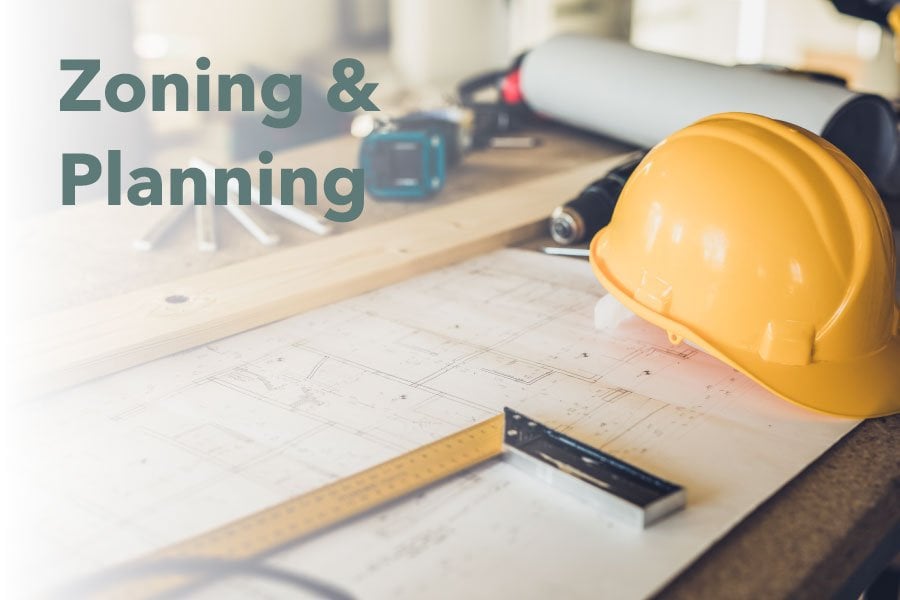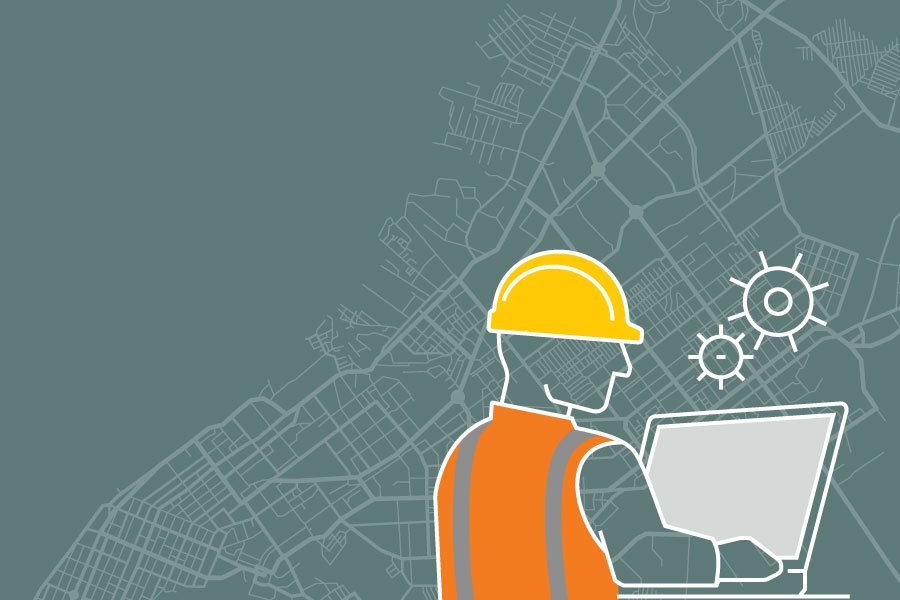3 min read
How to Navigate Zoning & Permitting for Your New Accessible Modular Home
Luella Strattner
:
Updated on June 17, 2025

Often zoning approval from local town officials is the longest part of the process to make your home accessible through a major renovation, a stick-built addition, or an accessible modular home. After a traumatic accident, a diagnosis, or a family decision to move a grandparent into your home instead of sending them to a nursing home, a WheelPad® accessible modular home can be quickly ordered and installed if you have planned ahead for potential local zoning and permitting snafus. Let’s look at how to chart your course for success.
Zoning: What You Need to Know
First, you will need to look up the zoning for your property. It is most efficient to speak directly with your town officials about this and learn what the requirements are for your property. Some larger towns/cities may have an online database where you can look up the zoning requirements for different parcels. Important details to gather are around required setbacks (the distance from the side of a structure to the property line), wastewater lines and septic/sewage requirements, and finally the zoning category. If the property where your addition/tiny home or ADU (accessory dwelling unit) will be placed is already a residence, it is most likely in a residential zone, however there may be zoning laws that affect your ability to place, for example, a mobile home or additional stand-alone structures on the property. Historical zoning as well as aesthetic zoning may also come into play if your property is in one of those zones.
After you’ve decided to add accessible living space to your property, the next step is to speak with your town officials to understand what paperwork is needed in order to proceed legally with the project. If you are working within the existing footprint of your home, in most cases a building permit will be required from your local government officials. A simple internet search will pull up either an online portal where you can apply for a permit or the phone number you will need to call in order to start the process. Often your contractor or builder will obtain the required permit(s) on your behalf.
If you will be expanding your existing footprint, you will also need to work with your local zoning office to ensure that you have permission in place to add onto your existing structure or to add a structure to your property. WheelPad staff will support you and your general contractor in navigating through this process.
Differences Between Modular Housing and Manufactured Homes
While both modular housing and manufactured homes are built offsite, there are differences between the two.
- Modular homes are built using more traditional building materials and techniques and are required to meet the local building code. Larger modular homes are often delivered in sections and assembled on-site onto a permanent foundation. Modular construction is gaining popularity for its eco-friendly practices (less waste and more durable than traditional house building) and shorter construction and installation time. Regardless of how the building arrives, modular homes are required to be placed on a permanent foundation.
- Manufactured homes, often called mobile homes or trailers, are built to the national HUD code, are designed to be able to be moved on a permanent chassis, and may only be placed on a temporary foundation at the site.
There are often differences in local zoning laws regarding modular and manufactured housing. Some neighborhoods, for example, may not allow manufactured housing.
WheelPad’s accessible modular homes are unique in that they are delivered on a trailer which can serve as the foundation, or it can be installed on a more traditional type of foundation, like a concrete slab. This allows your WheelPad home to meet both common zoning requirements: some towns require ADUs or additions to be placed on a permanent foundation, and others want them to be temporary structures.
Medical Necessity Makes a Difference
Additionally, our experience in working with zoning officials over the past 5 years has been overwhelmingly favorable. Once zoning offices understand that your accessible modular home is being installed due to medical necessity, they approve the permit and the installation can move forward. Many towns have concerns about ADUs being added to residential areas for short-term rental purposes, so speaking to the officials and telling them your story can go a long way in helping smooth the process.

Tips for Communicating with Town Officials
To recap, here are tips for communicating with your local town officials.
-
Contact your local zoning office early on in your planning process.
- You may learn that your current home is just not suitable for adding a StudioPAD due to setback requirements, in which case you would need a different plan. Or, the zoning approval process may take some towns months due to volume or staffing issues. The sooner you reach out the sooner you can have a solution.
- Ask about setbacks, wastewater, additional structures, and medical necessity zoning.
- Share your story.
- As naturally in conversation as you can, share why you are installing a StudioPAD or renovating your first floor. If this is too emotionally challenging, WheelPad staff can assist or make that first connection on your behalf.
- Sometimes town officials will know about other resources that could be of assistance.
- We are all humans - sharing your story can help others help you.
- Ask for permission, rather than forgiveness.
- Follow up regularly, and kindly.
- You can ask when it might be helpful to follow up with the official working on your application and set a reminder to reach out.
- Daily check-ins or multiple voicemails in one day are probably not going to be helpful unless you’ve been given a date for an answer and they have not gotten back to you.
The main thing to keep in mind is to simply communicate. Initiate the process, share information as you have it, respond to questions, attend town meetings pertaining to your request (or send someone on your behalf), and be sure to follow up in a kind manner if you are running into delays that affect your family. In our experience, enabling housing choices for people affected by mobility changes and keeping families together is a commonly shared community value.